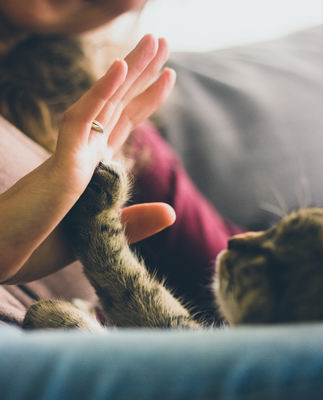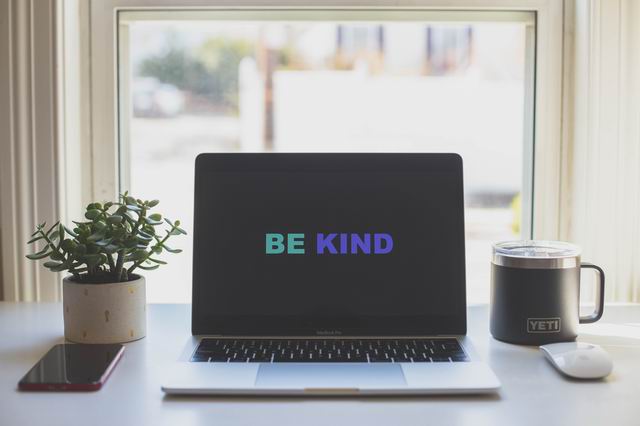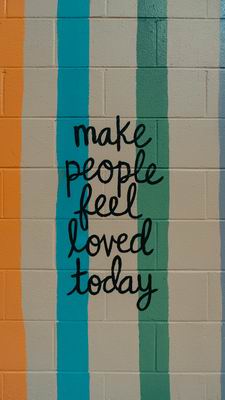"Kindness is the language that the deaf can hear, and the blind can see." ~ Unknown
Many people appreciate that being kind is synonymous with showing you care about others. On the other hand, others sneer at kindness in business and express the belief that if you’re too kind, you only set yourself up for others to take advantage of you.
Contents:
Kindness Is Important
In fact, many people often show more kindness to animals than they do to fellow humans.
I believe that whether it’s business or life in general, we’re dealing with other humans; thus, there are always ways we can show kindness.
It is true that in the stressful world we live in, kindness must be accompanied by patience and the ability to remain calm. It will require becoming more aware of what may trigger negative feelings and reactions toward others.
Here are five ways to develop kindness when you interact with others, whether in your personal life or business:
Be Sincere
Sincerity is a fundamental facet of kindness. You can’t sustain being kind for long if you don’t really mean it!
In a world where trust is at an all-time low, train yourself to look for the good in people, things, or situations and act with sincerity and kindness.
Practice Active Listening
"When people talk, listen completely. Most people never listen." ~ Ernest Hemingway
Active listening is an art that takes practice. Carefully observe two people having a conversation. You’ll often see two people taking turns saying what they want. Neither is really listening to the other. It’s not a two-way dialogue.
If you’re going to help another person feel better or solve a problem, you must really listen. Notice their body language, maintain eye contact, don’t rehearse what you’re going to say but give them the gift of being heard.
Learn to Really Empathize
Being kind requires empathy. By being an engaged listener, you can pick up on how the other person is feeling. Their body language, their tone of voice and facial expressions, as well as their words, will give you clues to help you understand how they’re feeling, and what they might need from you. When you learn to empathize, you’ll be able to put yourself in the other person’s shoes.
You can feel their pain, hurt, or confusion. You don’t judge, criticize, or rush to advise. You just sit with them and acknowledge where they are right now. This is true empathy.
Become Compassionate

While compassion is closely tied to empathy, it’s not the same thing. It goes beyond feeling the other person’s pain in your heart; it takes it to the next step. It allows you to take action to correct or relieve the other person’s situation and/or suffering.
Learn to Give
Generosity is a key element of kindness. Volunteering is a great way to do something real and constructive when it might seem that the world is a perilous state. It’s up to you what you choose to provide, whether it’s time, the space to listen, money, or other practical help.
I appreciate this quote from Og Mandino:
"Beginning today, treat everyone you meet as if they were going to be dead by midnight. Extend to them all the care, kindness, and understanding you can muster, and do it with no thought of any reward. Your life will never be the same again."
And from one of the most ancient books, the Bible: 1 Corinthians 13:4, “Love is patient and kind…”
Simple Ways to Put Kindness in Action
Showing kindness to others does not have to be grand gestures and events that publicly demonstrate to others that we’re kind. Very often, simple daily gestures make life more enjoyable for each of us and those to whom we show small acts of kindness.
Here are some simple everyday ways to include kindness in your day:
- Stop to let a pedestrian cross the street or to allow another driver into the traffic.
- Say please and thank you.
- Say good morning and good night to your colleagues.
- Smile at a stranger.
- Hold the door for the next person.
- Hold the elevator.
- Let someone with only a few items go in front of you in the grocery store.
- Do a coffee run for your colleagues.
- Hug your loved ones.
- Push the trash bins out for your neighbors.
- Mow your elderly neighbor's lawn.
- If you're going to the store, ask your neighbor if you can pick anything up for them.
- Try volunteering at your local soup kitchen or shelter.
- Be the bigger person and let the other guy have the coveted parking space.
- Stand up for someone on the bus or subway.
- Ask a stressed-out co-worker if you can help.
- Help wash the cups after a meeting.
- If the photocopier is running on empty, replace the toner and fill the paper bin.
- Buy surprise flowers for your partner.
- Give a contribution to a street entertainer.
- Commit to stop grousing for a week.
- Join your company's mentor or buddy program.
- Leave a book or magazine on the subway or in a bus station.
- Donate your excess art supplies or craft materials to an elementary school.
- Encourage your kids to sort through their stuff and donate items in good condition to charity.
- Donate money to your favorite charity or non-government organization.
- Notice what your partner or colleagues are wearing and pay a few compliments.
- Ask friends or colleagues how they are and listen to the answers.
- Reach out to family members or friends, send a text message, or call them to see how they are.
- Clean up your neighborhood. If you see trash in the street, pick it up and put it in the bin.


